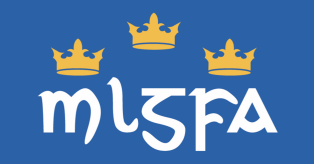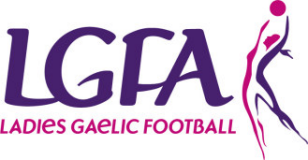Mallow woman Elaine
Hayes speaks to Mary White about
her role as the president of the British LGFA Provincial Council and
vice-president of the LGFA
AT JUST 24, Elaine Hayes is steadily climbing the
administrative ladder of the Ladies Gaelic Football Association (LGFA).
The Dromohane woman
is presently teaching PE in an all-girlsâ school in Slough, England, and for
the past year has held the presidency of the British LGFA Provincial Council,
while also holding a vice-presidency seat of the national association.
A search for work
brought her to the UK in August 2012, and to an area of Barkshire close to the
Irish-populated town of Reading.
It was here she
signed with Fr Murphyâs football team in a bid to find a home from home and
establish friendships outside of work with like-minded people â two being
Corkonians, Laura Power of Beara and Castlemagnerâs Lisa OâKeeffe.
âI had signed a contract for a job in the UK and got a phone
call from Larry OâLeary, a Clonakilty man living in London who was involved
with Fr Murphyâs, and I went along and havenât looked back since.
âAs with many other girls who come to the UK to work, I
found that being part of a club gave you an immediate circle of friends and it
helped with settling in.â
Football first entered her domain when a best friendâs
neighbour told her of a new club forming in north Cork, and although not
admittedly the most skilful player, Hayesâ administrative qualities came to the
fore, even at the tender age of 16 when she became the PRO for Dromohane Ladies
Football Club.
From there she
progressed to PRO for the North Cork Board, before taking up the position of
assistant PRO for the Cork County Board, and then Culture and Language officer,
before departing for the UK.
It didnât take very
long for OâLeary to notice Hayesâ ability to manage and organise, and soon
arose the need for a president for the British Provincial Council.
âLarry had heard that I had been involved with Cork and
asked would I come go to the Provincial Convention in Birmingham. The sitting
president was stepping down and there was no nominated person, so I took on the
role, not really knowing what I was getting myself into.â
The commutes between the different clubs spread across the
UK is immense, and thereâs not just that to deal with, but thereâs also LGFA
management committee meetings in Dublin every few weeks â all that whilst
working full-time and playing between the posts for Fr Murphyâs.
âThe distance that I have to cover probably isnât
appreciated by many people at home. London had been the stronghold of football
for quite a long time, but now with clubs operating in the northern half of
Britain, the distance increases every year.
âI flew up to Edinburgh to see their All-Ireland junior
quarter-final against Shane OâNeillâs, and the following week I flew home to
Cork.
âThe flight to Cork turned out to be just 15 miles more than
my flight to Edinburgh the previous week!
âThere are other Scottish clubs such as Glasgow and Aberdeen
that are looking to set up, and Aberdeen is a further two-hour drive north of
Edinburgh.
âOur furthest club south is Plymouth, which is a three-hour
drive from London. Edinburgh and Plymouth are nearly 500 miles apart, so when
looking at it in that context, the distance to cover is a huge challenge,
especially when we have such a small committee.
âThe distance causes huge cost issues for teams; it means
that girls are having to give up nearly a whole day when playing games because
of the distance we have to travel to play games.
âFor example, a London club playing a club from Liverpool or
Manchester, the halfway venue is Páirc na hÃireann in Birmingham, at least a
two-hour drive for each team.
âThe fixtures will be a big challenge this year too, with
Dunedin Connollyâs of Edinburgh competing in the intermediate championship
along with a team each from Manchester and Liverpool, and five teams from
London.
âItâs going to be a balancing act to ensure that clubs donât
have to travel huge distances and at huge costs; I would love to be in a
position to be able to subsidise these trips, but we are not.â
Although there are issues to be dealt with, Hayes is hugely
proud of how the game has grown across the Irish Sea, and the former UCC PE
graduate hopes that the rise in numbers will attract more UK home-grown players
too.
âThere has been a big influx of Irish players in recent
years with a lot of girls having to move to the UK for work, especially
teachers and nurses. That has led to the standard of football rising,
especially in London where itâs well established.
âAt the moment, we have 25 clubs, with six new clubs
starting up for 2014, with more than 600 players involved â 99% of which are at
adult level.
âWe are looking at putting underage structures in place this
year, piloting programmes with a number of different clubs to encourage girls
of any descent, not just Irish, to try the game.
âThe standard has been highlighted by the fact that in 2012
Parnellâs of London won out the All-Ireland Intermediate Club Championship,
with 2013 seeing Dunedin Connollyâs of Edinburgh reaching the All-Ireland Club
Junior final, being defeated by a very strong Na Gaeil side of Kerry in the
final.â
With no financial funding from Sport England, and little
from the association itself in Ireland, finances are hard to come by, but
change is on the way as Hayes has also taken up a role on the provinceâs
funding committee.
âWe have agreed to form a new body for Gaelic Games within
Britain with the Menâs Provincial Council and camogie, but with each individual
council keeping its own existing body.
âThis will enable us to set up as National Governing Body
and be able to access funding that we previously could not access, which will be
a fantastic help to us.
âAs president of the ladies, I will be involved in the new
executive and play a role in the funding committee too, so I hope Iâll be able
to contribute more with that aspect.
âI would love to see us have a full-time paid official like
the other provinces do.â
On a personal level, juggling a full-time job and the
workload of the provincial president is massive.
With a differing
education system in the UK, Hayesâ job as a PE teacher is surprisingly very
much paper-driven, however a 9.30am start most days has given her the leeway to
commute back and forth to Ireland and throughout the UK for various meetings.
âIt feels like I have two full-time jobs at times trying to
keep on top of everything between football and school.
âMy usual routine for a meeting in Dublin would be to leave
work at 3.15pm, go home to pick up my bags and head straight for Heathrow
Airport, either catch the bus or train.
âI can be into the airport and through security by 4.45pm
for a 5.30pm flight. Land in Dublin and itâs pretty much straight into the
meeting which can last until 11pm or 12am.
âThen itâs a few hours sleep, back out to Dublin Airport to
catch the 6.50am flight into Heathrow, and into work by 9.30am at the latest!â
And so what now for the upcoming year?
âIâve spent a lot of time trying to build up relationships
with clubs over here, at home it would be different as I would have already
built up a load of contacts, whereas in Britain it was like I was starting from
scratch all over again.
âThe fact that there is no underage structure at present is
another huge challenge that we will be meeting head-on this year in trying to
establish that structure in order to give stability to clubs.â
A shot at the national presidency of the LGFA is on Hayesâ
radar, but for now sheâs learning the ropes, here and overseas, and itâll stand
to her as she aims to make the game the best itâs ever been.
âEventually Iâd love to be in a position to take on the role
of national president at some stage in my career, but at the minute, Iâm loving
the role Iâm in.
âLadies football is such a highly skilful game, and a game
that is not afraid to embrace modern techniques and ideas, such as the ref cam
last year.
âThe standard of football at inter-county level is so high,
yet I still feel that itâs still not fulfilling its potential from a marketing
point of view.
âThis year saw the highest attendance in Croke Park for the
ladies finals in quite a number of years â yet itâs frustrating to see a
sell-out crowd on the Saturday for the hurling final, yet not even a third of
that attendance were at this yearâs ladies finals.â
Her thirst not only for the development of the game, but her
desire to act upon it and change things for the better, certainly makes Hayes a
LGFA presidential candidate in the future.
Thatâs what you need
to make a difference, and sheâs got it.




